
We use experiments, mathematics, and machines for immunomics, microbiology, and AI/ML.
Your billions of B and T cells play pivotal roles in aging, infection, vaccination, autoimmunity, cancer, and more. Our main goal is to find signals and signatures that describe what each cell is doing, to better prevent, diagnose, and treat disease. We also use machine learning, informatics, and computation to advance other fields.
Selected publications
AI/ML/CS/QBio:
Arora R and Arnaout R. Repertoire-scale measures of antigen binding. PNAS 2023 HTML | PDF
Chinn E, Arora R, Arnaout R, Arnaout R. ENRICHing medical imaging training sets enables more efficient machine learning. JAMIA 2023 HTML | PDF
Arora R, Kaplinsky J, Li A, and Arnaout R. Repertoire-Based Diagnostics Using Statistical Biophysics. bioRxiv 2019 HTML | PDF
Madani A, Arnaout R, Mofrad M, and Arnaout R. Fast and accurate classification of echocardiograms using deep learning. NPJ Digital Med. 2018. 1(1): s41746-017-0013-1 HTML | PDF
Krishnan V, Stoppel DC, Nong Y, Johnson MA, Ozkaynak E, Nadler MJS, Peterson S, Teng BL, Silva M, Nagakura I, Kasper E, Mohammad F, Arnaout R, and Anderson MP. Ube3a and seizures impair sociability by down-regulating autism network gene Cbln1 in VTA. Nature. 2017. 543(7646):507-512 HTML | PDF
Kaplinsky J and Arnaout R. Robust Estimates of Overall Immune-Repertoire Diversity from High-Throughput Measurements on Samples. Nat Commun. 2016. 15(7):11881. HTML | PDF
Kaplinsky J, Li A, Sun A, Coffre M, Koralov SB, Arnaout R. Antibody Repertoire Deep-Sequencing Reveals Antigen-Independent Selection in Maturing B Cells. Proc Natl Acad Sci U S A 2014. 111(25):E2622-9. HTML | PDF
Lakhani KR, Boudreau KJ, Loh P-R, Backstrom L, Baldwin C, Lonstein E, Lydon M, MacCormack A, Arnaout RA†, Guinan EC†. Prize-Based Contests Can Provide Solutions to Computational Biology Problems. Nat. Biotechnol. 2013. 31(2):108-11. †Co-senior authors HTML | PDF
Tsibris AM, Korber B, Arnaout R, Russ C, Lo CC, Leitner T, et al. Quantitative deep sequencing reveals dynamic HIV-1 escape and large population shifts during CCR5 antagonist therapy in vivo. PLoS One. 2009. 4(5):e5683. PMCID: 2682648. HTML | PDF
Sallstrom B, Arnaout RA,* Davids W,* Bjelkmar P, Andersson SG. Protein evolutionary rates correlate with expression independently of synonymous substitutions in Helicobacter pylori. J Mol Evol. 2006. 62(5):600-14. *These authors contributed equally to this work PubMed
Dostie J, Richmond TA, Arnaout RA, Selzer RR, Lee WL, Honan TA, et al. Chromosome Conformation Capture Carbon Copy (5C): a massively parallel solution for mapping interactions between genomic elements. Genome Res. 2006. 16(10):1299-309. PMCID: 1581439. HTML | PDF
Arnaout RA. Specificity and overlap in gene segment-defined antibody repertoires. BMC Genomics. 2005. 6:148. PMCID: 1277825. HTML | PDF
Clinical/Microbiology/Policy:
Cheng A, Riedel S, Arnaout R, Kirby JE. Verification of the Abbott Alinity m Resp-4-Plex Assay for Detection of SARS-CoV-2, Influenza A/B, and Respiratory Syncytial Virus. Diagn Microbiol Infect Dis. In press. HTML | PDF
Callahan CJ, Lee RA, Lee GR, Zulauf K, Kirby JE, and Arnaout R. Nasal Swab Performance by Collection Timing, Procedure, and Method of Transport for Patients with SARS-CoV-2. J. Clin Microbiol. 59:e00569-21 2021 HTML | PDF
Callahan CJ, Ditelberg S, Dutta S, Littlehale N, Cheng A, Kupczewski K, McVay D, Riedel S, Kirby JE, Arnaout R. Saliva is Comparable to Nasopharyngeal Swabs for Molecular Detection of SARS-CoV-2. Microbiol Spectrum. 9:e0016221 2021 HTML | PDF
Arnaout R*, Lee R, Lee G, Callahan C, Yen C, Smith K, Arora R, and Kirby JE*. The Limit of Detection Matters: The Case for Benchmarking Severe Acute Respiratory Syndrome Coronavirus 2 Testing. Clin. Infect. Dis. ciaa1382 2021. *co-corresponding authors HTML | PDF
Callahan CJ, Lee R, Zulauf K, Tamburello L, Smith KP, Previtera J, Cheng A, Green A, Abdul Azim A, Yano A, Kirby JE, Arnaout R. Rapid Open Development and Clinical Validation of Multiple New 3D-Printed Nasopharyngeal Swabs in Response to the COVID-19 Pandemic. J. Clin. Microbiol. 58:e00876-20 2020 HTML | PDF
Callahan C, Lee R, Lee G, Zulauf KE, Kirby JE, Arnaout R. Nasal-Swab Testing Misses Patients with Low SARS-CoV-2 Viral Loads. medRxiv 2020 HTML | PDF
Kaushik N, Khangulov VS, O’Hara M, and Arnaout R. Evaluation of the reduction in Laboratory turnaround time as a potential driver to the decrease in ED length of stay: A retrospective analysis. Open Access Emerg Med. 2018. 10:37 HTML | PDF
Arnaout R. Seeing the Forest for the Trees: Machine Learning in Clinical Pathology. Clin Chem. 64(11):1553-1554. 2018 HTML | PDF
Theisen-Toupal J, Breu AC, Mattison MLP, Arnaout R. Diagnostic yield of head computed tomography for the hospitalized medical patient with delirium. Journal of Hospital Medicine 2014. 9(8):497-501. HTML | PDF
Mohammad, F, Theisen-Toupal J, Arnaout R. Advantages and Limitations of Anticipating Laboratory Test Results from Regression- and Tree-Based Rules Derived from Electronic Health-Record Data. PLoS One 2014; 9(4): e92199. HTML | PDF
Zhi M, Ding, EL, Toupal-Thiessen J, Whelan J, Arnaout R. The landscape of inappropriate laboratory testing: a 15-year systematic review and meta-analysis. PLoS One 2013; 8(11): e78962. HTML | PDF
Arnaout R, Buck TP, Roulette P, Sukhatme, VP. Economic modeling could aid brain map. Nature. 2013; 497(7450):439. HTML | PDF
Arnaout R, Buck TP, Roulette P, Sukhatme VP. Predicting the Cost and Pace of Pharmacogenomic Advances: An Evidence-Based Study. Clin Chem. 2013. 59(4):649-57. HTML | PDF
Buck TP, Connor IM, Horowitz GL, Arnaout RA. CallWall: tracking resident calls to improve clinical utilization of pathology laboratories. Arch Pathol Lab Med. 2011. 135(7):920-4. HTML | PDF
Our team
We are biologists, physicians, computer scientists, physicists, mathematicians, and engineers of many backgrounds, career paths, and interests united in unlocking the secrets of the immunome—and having fun doing it.
Current and former members
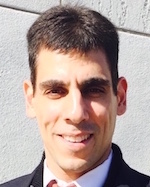 Ramy Arnaout, MD, DPhil, director of the lab, is Associate Professor of Pathology at Beth Israel Deaconness Medical Center and Harvard Medical School, and Associate Director of the Clinical Microbiology Laboratories at BIDMC. He is president-elect of the American Society of Microbiology Northeast Branch and past Chairman of the FDA/CMS/CDC CLIA Committee. He received his SB from MIT, DPhil from Oxford University (Marshall Scholarship), and MD from Harvard Medical School (Soros Fellow). He completed residency in pathology at Brigham and Women's Hospital and postdoctoral work at the Broad Institute.
Ramy Arnaout, MD, DPhil, director of the lab, is Associate Professor of Pathology at Beth Israel Deaconness Medical Center and Harvard Medical School, and Associate Director of the Clinical Microbiology Laboratories at BIDMC. He is president-elect of the American Society of Microbiology Northeast Branch and past Chairman of the FDA/CMS/CDC CLIA Committee. He received his SB from MIT, DPhil from Oxford University (Marshall Scholarship), and MD from Harvard Medical School (Soros Fellow). He completed residency in pathology at Brigham and Women's Hospital and postdoctoral work at the Broad Institute.
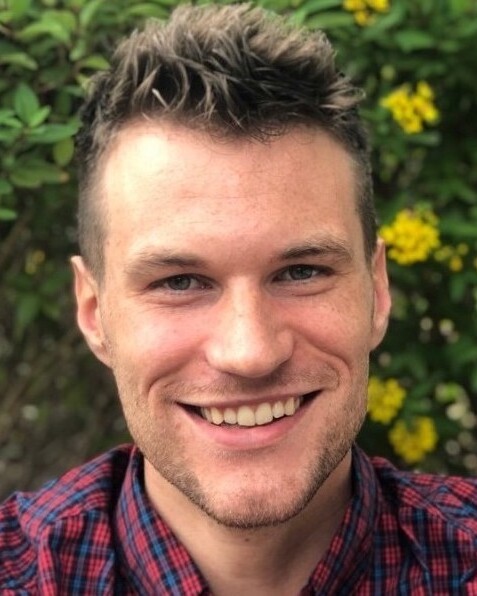 Jasper Braun, PhD is a postdoctoral fellow working on immunomics in the lab. He received his doctorate in Mathematics from the University of South Florida, where he refined computational annotation and analysis techniques for DNA rearrangements in ciliates. He enjoys working wherever math and computer science meet real world data.
Jasper Braun, PhD is a postdoctoral fellow working on immunomics in the lab. He received his doctorate in Mathematics from the University of South Florida, where he refined computational annotation and analysis techniques for DNA rearrangements in ciliates. He enjoys working wherever math and computer science meet real world data.
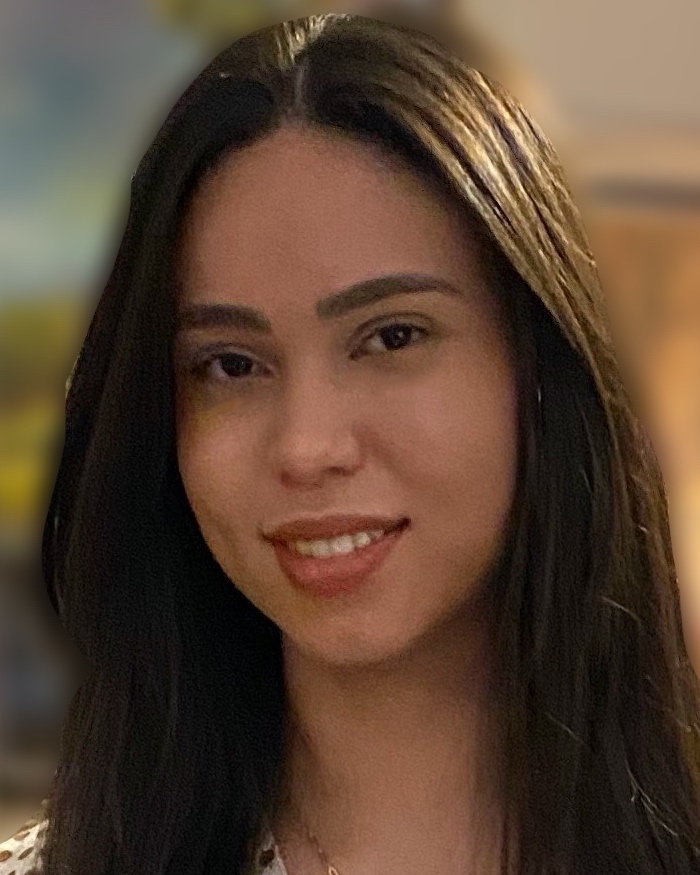 Elisa Contreras is a research assistant in our immunomics lab. She received her bachelor's in Biotechnology from the Institute of Technology of Santo Domingo, after graduating she worked in clinical diagnostics amid the Covid-19 pandemic, later on focusing on research of SARS-CoV-2. She is interested in molecular biology, sequencing and good food.
Elisa Contreras is a research assistant in our immunomics lab. She received her bachelor's in Biotechnology from the Institute of Technology of Santo Domingo, after graduating she worked in clinical diagnostics amid the Covid-19 pandemic, later on focusing on research of SARS-CoV-2. She is interested in molecular biology, sequencing and good food.
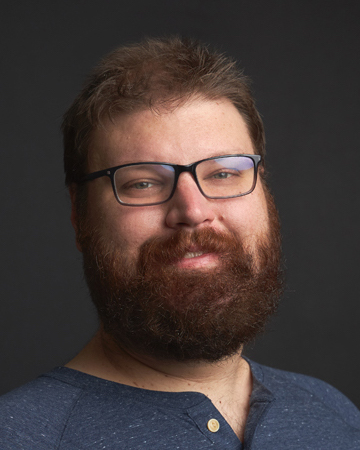 Josiah Couch, PhD (ORCID) is a postdoctoral fellow working on applications of information theory and machine learning to biology. He received his PhD in physics from the University of Texas at Austin, where he worked at the intersection of information theory, gravity, and field theory. Afterward, he spent time in the computer science department at Boston College, studying problems related to random graphs. His interests include physics, information theory, and machine learning.
Josiah Couch, PhD (ORCID) is a postdoctoral fellow working on applications of information theory and machine learning to biology. He received his PhD in physics from the University of Texas at Austin, where he worked at the intersection of information theory, gravity, and field theory. Afterward, he spent time in the computer science department at Boston College, studying problems related to random graphs. His interests include physics, information theory, and machine learning.
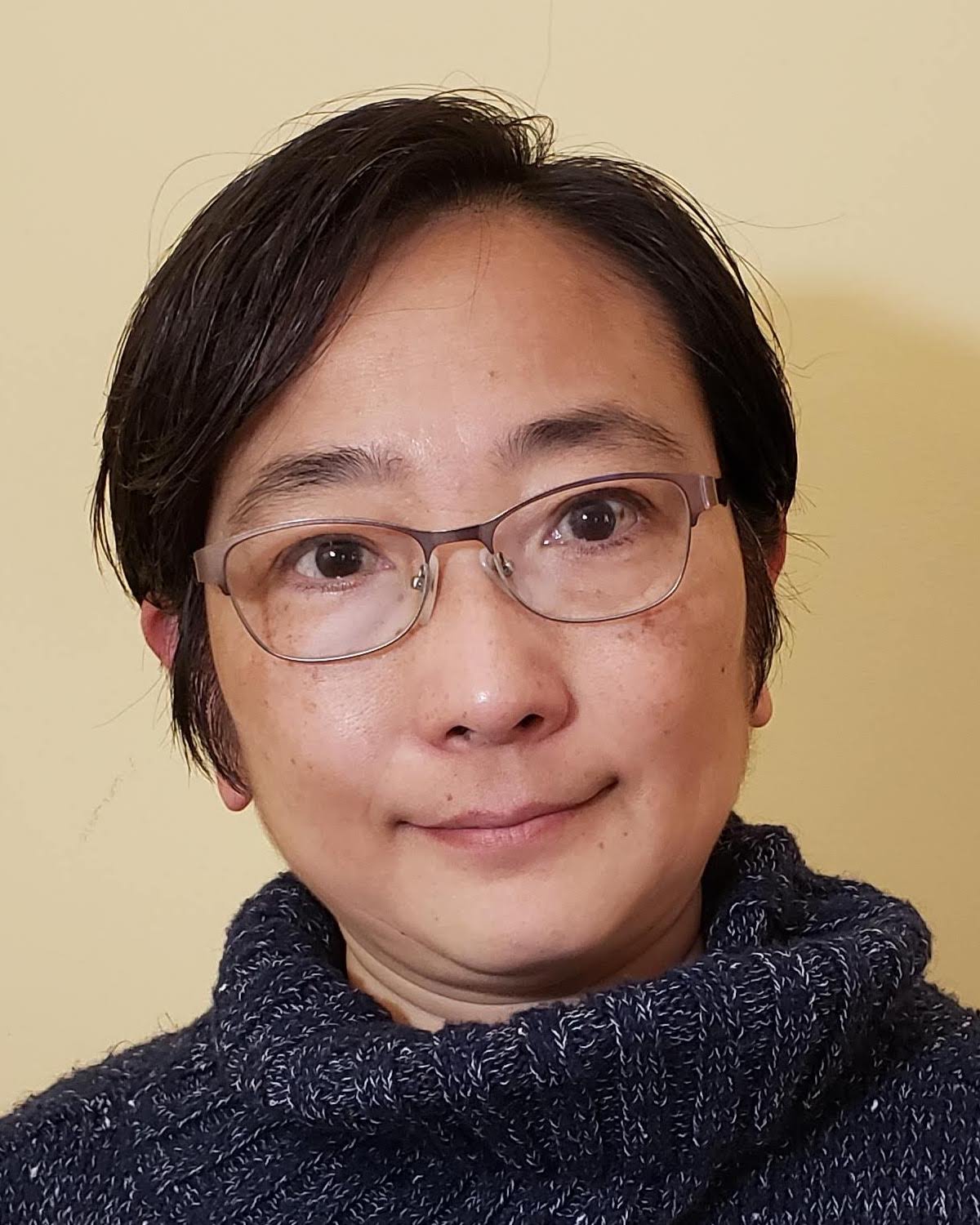 Michie Yasuda, PhD is a research laboratory technician in our immunomics lab. She has 30 years of experience in biological laboratories mostly focusing on bacteriology and microbial analysis. A veteran of the University of Massachusetts, she is interested in mushroom hunting and sake brewing.
Michie Yasuda, PhD is a research laboratory technician in our immunomics lab. She has 30 years of experience in biological laboratories mostly focusing on bacteriology and microbial analysis. A veteran of the University of Massachusetts, she is interested in mushroom hunting and sake brewing.
 Tarini Shankar is a student research assistant completing her co-op in our immunomics laboratory. She is a second year student at Northeastern University and is majoring in Cell and Molecular Biology with a minor in Data Science. She is interested in microbiology and computational biology. She is also an avid painter and spicy food enthusiast.
Tarini Shankar is a student research assistant completing her co-op in our immunomics laboratory. She is a second year student at Northeastern University and is majoring in Cell and Molecular Biology with a minor in Data Science. She is interested in microbiology and computational biology. She is also an avid painter and spicy food enthusiast.
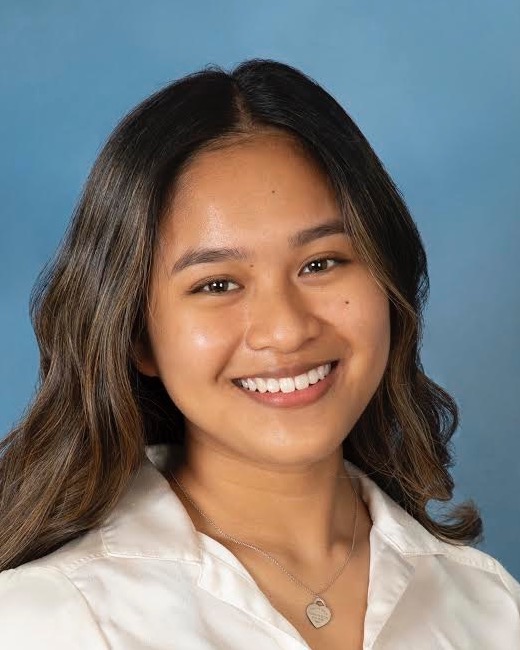 Diane Balallo is a student research assistant in our immunomics lab. She is a second-year student at Boston College where she is completing her Bachelor of Science in Neuroscience. Her interests include pain neuroscience, learning theory, and autoimmune disorders. She enjoys volunteering, running, and playing the piano.
Diane Balallo is a student research assistant in our immunomics lab. She is a second-year student at Boston College where she is completing her Bachelor of Science in Neuroscience. Her interests include pain neuroscience, learning theory, and autoimmune disorders. She enjoys volunteering, running, and playing the piano.
 Alex Morgan is a software developer
working on analysis and visualization of COVID-19 clinical data
in the lab. Alex has extensive experience working in scientific
research and the healthcare sector, using C, Java, Python, and
many other languages. Since receiving her bachelor's degree in
Geophysics from Brown University, she has piled on additional
coursework in biology and computer science. She is interested in
evolution, software quality, and many other subjects.
Alex Morgan is a software developer
working on analysis and visualization of COVID-19 clinical data
in the lab. Alex has extensive experience working in scientific
research and the healthcare sector, using C, Java, Python, and
many other languages. Since receiving her bachelor's degree in
Geophysics from Brown University, she has piled on additional
coursework in biology and computer science. She is interested in
evolution, software quality, and many other subjects.
Alumni
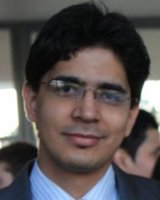 Rohit Arora, PhD is a research scientist at Iktos, Inc. He worked on immunomics as a postdoc in the lab. He received his doctorate in computational biology with highest honors from the Ecole Normale Superieure where he studied the origin and mechanism of resistance to the inhibitors of HIV-1 integrase. Previously he received his MS summa cum laude as an Erasmus Mundus scholar.
Rohit Arora, PhD is a research scientist at Iktos, Inc. He worked on immunomics as a postdoc in the lab. He received his doctorate in computational biology with highest honors from the Ecole Normale Superieure where he studied the origin and mechanism of resistance to the inhibitors of HIV-1 integrase. Previously he received his MS summa cum laude as an Erasmus Mundus scholar.
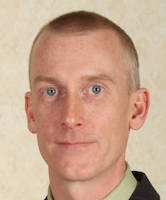 Thomas Buck, MD is a
hematopathologist in Connecticut. He completed his pathology training at the Beth Israel Deaconess Medical Center. He is interested in promoting an empirical approach to the practice of laboratory medicine and in finding ways to apply this directly to patient care. In the lab he helped build models and analyzed data on the pace of pharmacogenomic advances to forecast when they will affect patients in the clinic, and how much this is likely to cost.
Thomas Buck, MD is a
hematopathologist in Connecticut. He completed his pathology training at the Beth Israel Deaconess Medical Center. He is interested in promoting an empirical approach to the practice of laboratory medicine and in finding ways to apply this directly to patient care. In the lab he helped build models and analyzed data on the pace of pharmacogenomic advances to forecast when they will affect patients in the clinic, and how much this is likely to cost.
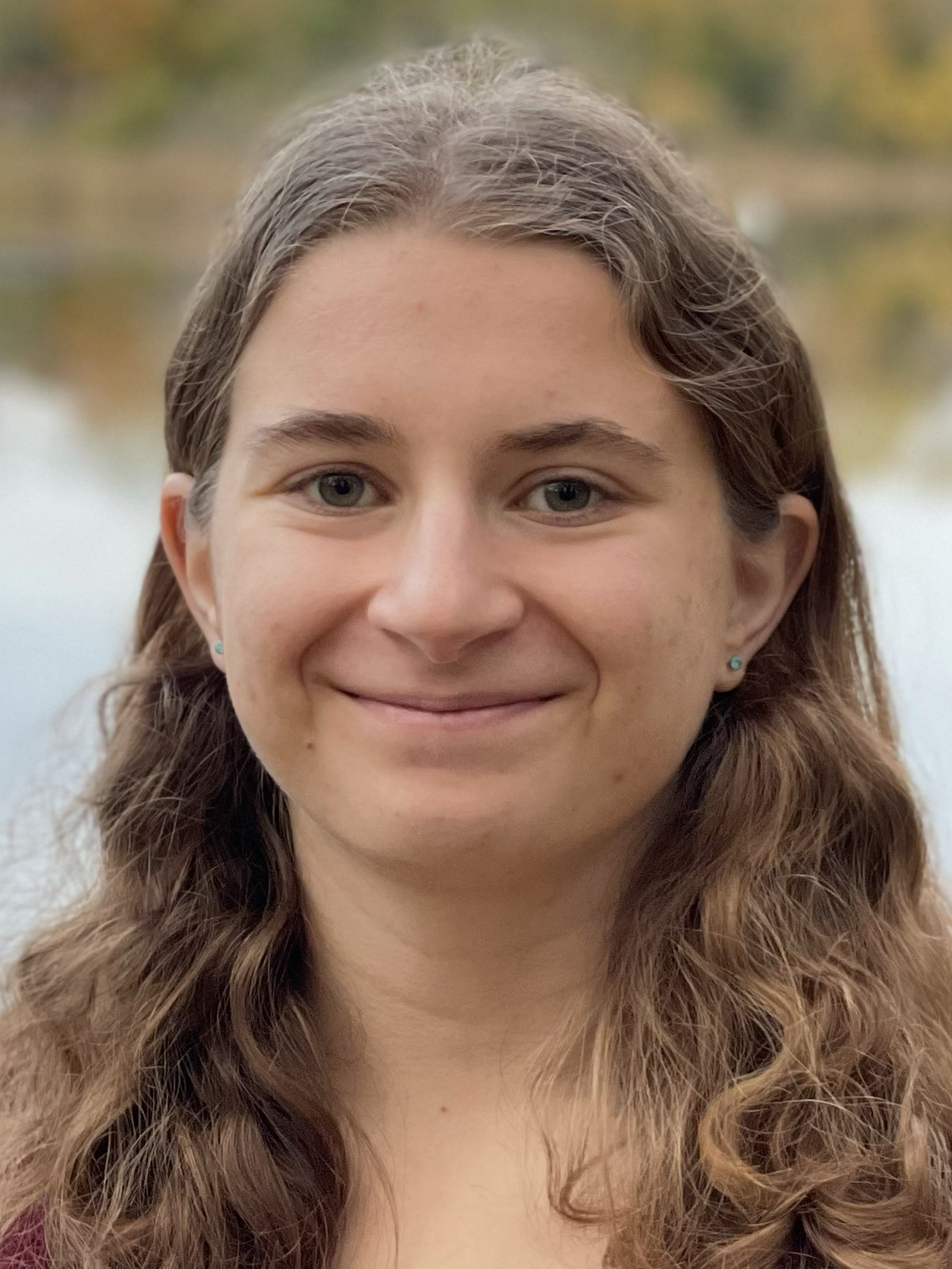 Ashley Burke was a summer research student for the Arnaout Lab. She is currently finishing her bachelor’s degree in Computer Science at Worcester Polytechnic Institute. During her studies at WPI, she has developed a passion for Software Engineering and hopes to use her skills to develop applications to improve people's lives.
Ashley Burke was a summer research student for the Arnaout Lab. She is currently finishing her bachelor’s degree in Computer Science at Worcester Polytechnic Institute. During her studies at WPI, she has developed a passion for Software Engineering and hopes to use her skills to develop applications to improve people's lives.
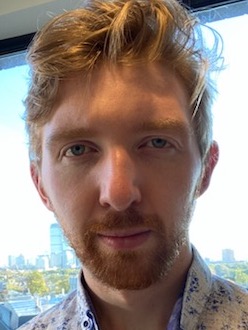 Cody Callahan is a biochemist from the University of Vermont, with an emphasis on cancer biology and microRNAs in prostate cancer. In the wake of the COVID-19 pandemic, he has devoted himself to clinical diagnostics, developing 3D-printed swabs and assessing various specimen types as clinical diagnostics for SARS-CoV-2. At present, his work has ranged from studying perfusion with hyperpolarized 13C, clinical diagnostics, next-gen sequencing, and robotics.
Cody Callahan is a biochemist from the University of Vermont, with an emphasis on cancer biology and microRNAs in prostate cancer. In the wake of the COVID-19 pandemic, he has devoted himself to clinical diagnostics, developing 3D-printed swabs and assessing various specimen types as clinical diagnostics for SARS-CoV-2. At present, his work has ranged from studying perfusion with hyperpolarized 13C, clinical diagnostics, next-gen sequencing, and robotics.
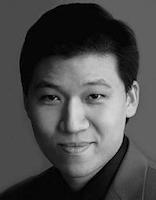 Eric L. Ding, ScD is an epidemiologist, nutritionist. His research focuses on obesity and nutritional risk factors for chronic diseases, social networks on health, and social media technology for health. In 2006, he was noted for his key role in leading a two-year-long investigation into the controversial drug safety and adverse metabolic risks of Vioxx®.
Eric L. Ding, ScD is an epidemiologist, nutritionist. His research focuses on obesity and nutritional risk factors for chronic diseases, social networks on health, and social media technology for health. In 2006, he was noted for his key role in leading a two-year-long investigation into the controversial drug safety and adverse metabolic risks of Vioxx®.
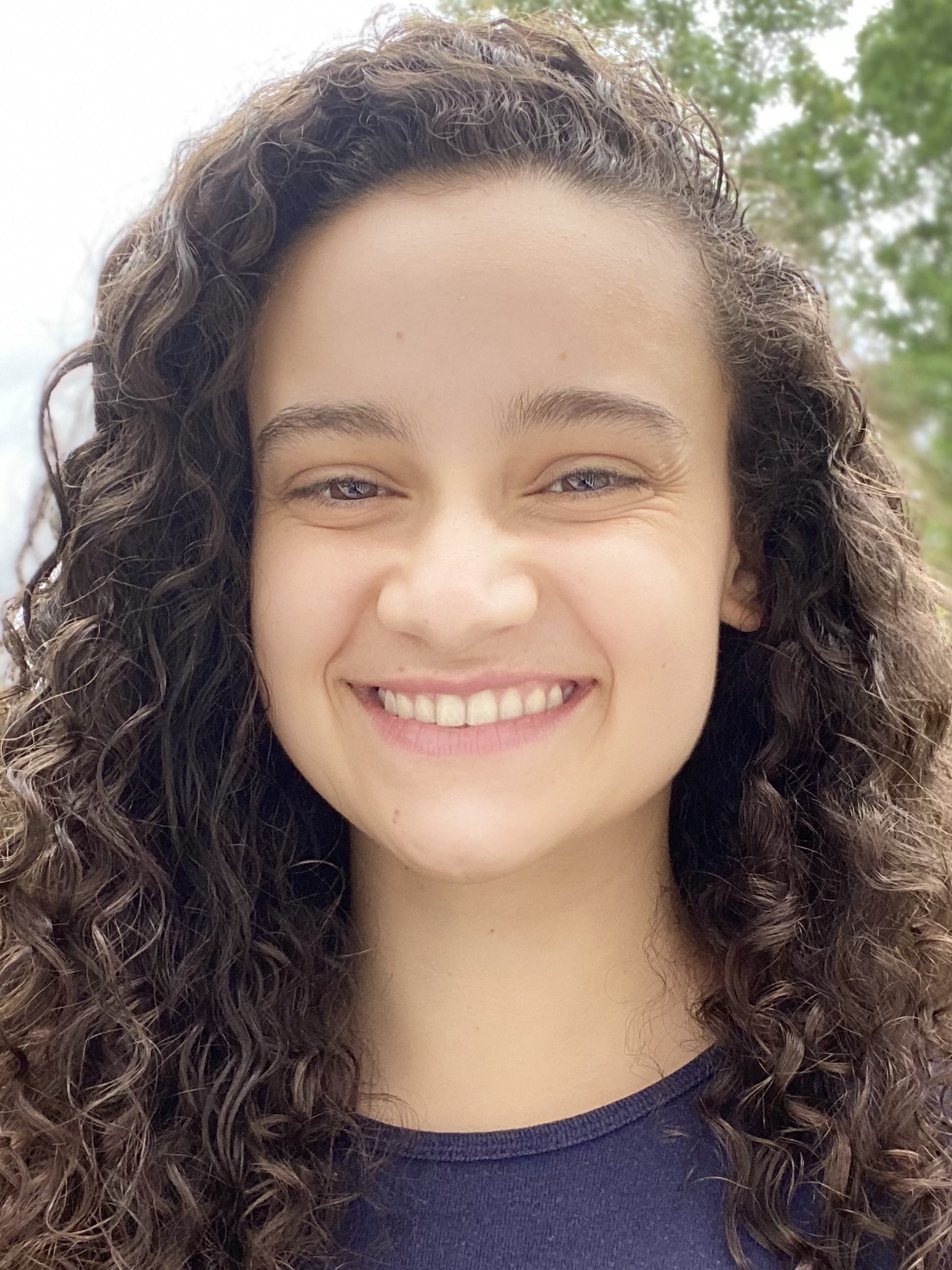 Sarah Ditelberg is a former research assistant in the lab where she helped uncover and sequence novel B and T cell receptors for SARS-CoV-2. She received her Bachelors in Biology from UMass Amherst in 2020, and throughout worked in Dr. James Kirby's lab studying synergistic treatments for Candida auris, later collaborating in Dr. Stefan Riedel lab on SARS-CoV-2 diagnostics. She is currently applying to medical school and working as a medical assistant in Brigham and Women's Orthopaedics Department.
Sarah Ditelberg is a former research assistant in the lab where she helped uncover and sequence novel B and T cell receptors for SARS-CoV-2. She received her Bachelors in Biology from UMass Amherst in 2020, and throughout worked in Dr. James Kirby's lab studying synergistic treatments for Candida auris, later collaborating in Dr. Stefan Riedel lab on SARS-CoV-2 diagnostics. She is currently applying to medical school and working as a medical assistant in Brigham and Women's Orthopaedics Department.
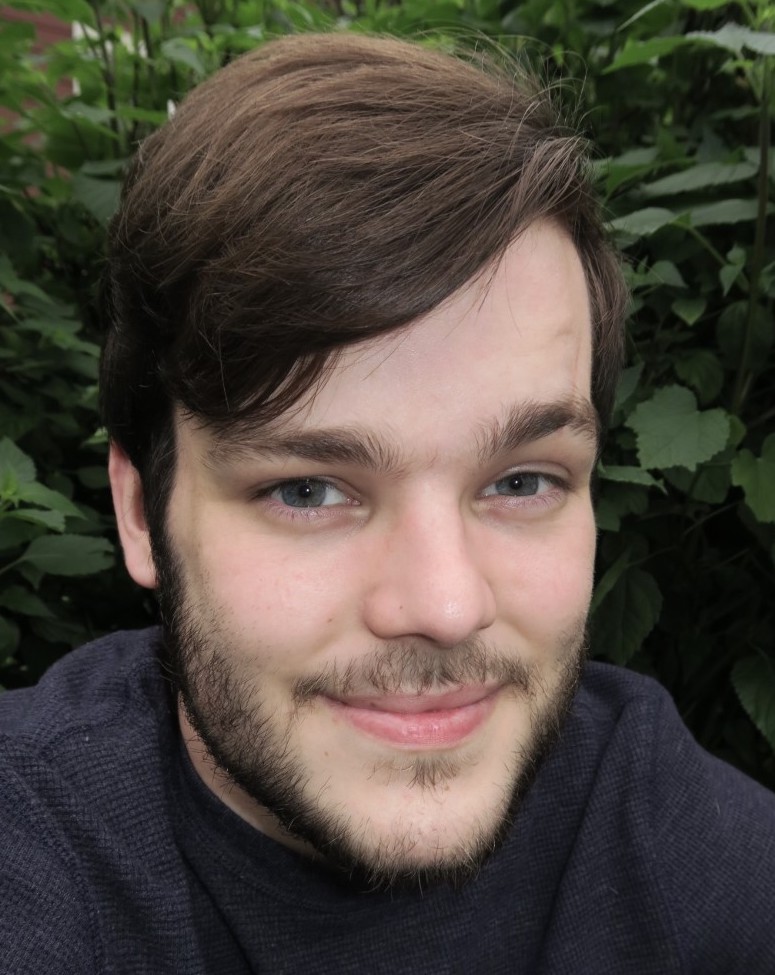 Elliot Hill, MsC is a computational scientist who developed software and machine learning models for immunome-based diagnostic tools in the Arnaout Lab.
He received his MS in computational science from Tulane University,
where he completed his thesis on numerical optimization.
His research interests lie at the intersection of statistics, machine learning, mathematics, and computer science.
He is currently a fellow at Duke’s AI Health program where he is working on predicting neurodevelopment disorders in adolescents.
Elliot Hill, MsC is a computational scientist who developed software and machine learning models for immunome-based diagnostic tools in the Arnaout Lab.
He received his MS in computational science from Tulane University,
where he completed his thesis on numerical optimization.
His research interests lie at the intersection of statistics, machine learning, mathematics, and computer science.
He is currently a fellow at Duke’s AI Health program where he is working on predicting neurodevelopment disorders in adolescents.
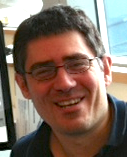 Joseph Kaplinsky, PhD is former a postdoctoral fellow studying immunomics in the lab. He received his doctorate from Imperial College, where he built microfluidic systems for single-cell analysis. Trained in theoretical and experimental physics as well as biology, he is interested in applying physical and quantitative systems approaches to biological problems.
Joseph Kaplinsky, PhD is former a postdoctoral fellow studying immunomics in the lab. He received his doctorate from Imperial College, where he built microfluidic systems for single-cell analysis. Trained in theoretical and experimental physics as well as biology, he is interested in applying physical and quantitative systems approaches to biological problems.
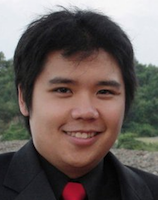 Anthony Li, MS is a former research assistant in the lab. He received his MS in Pharmaceutical Sciences from the Massachusetts College of Pharmacy and Health Sciences where he helped develop of liposomal techniques to specifically target mitochondria in malignant murine glial cells. He moonlights at the circus.
Anthony Li, MS is a former research assistant in the lab. He received his MS in Pharmaceutical Sciences from the Massachusetts College of Pharmacy and Health Sciences where he helped develop of liposomal techniques to specifically target mitochondria in malignant murine glial cells. He moonlights at the circus.
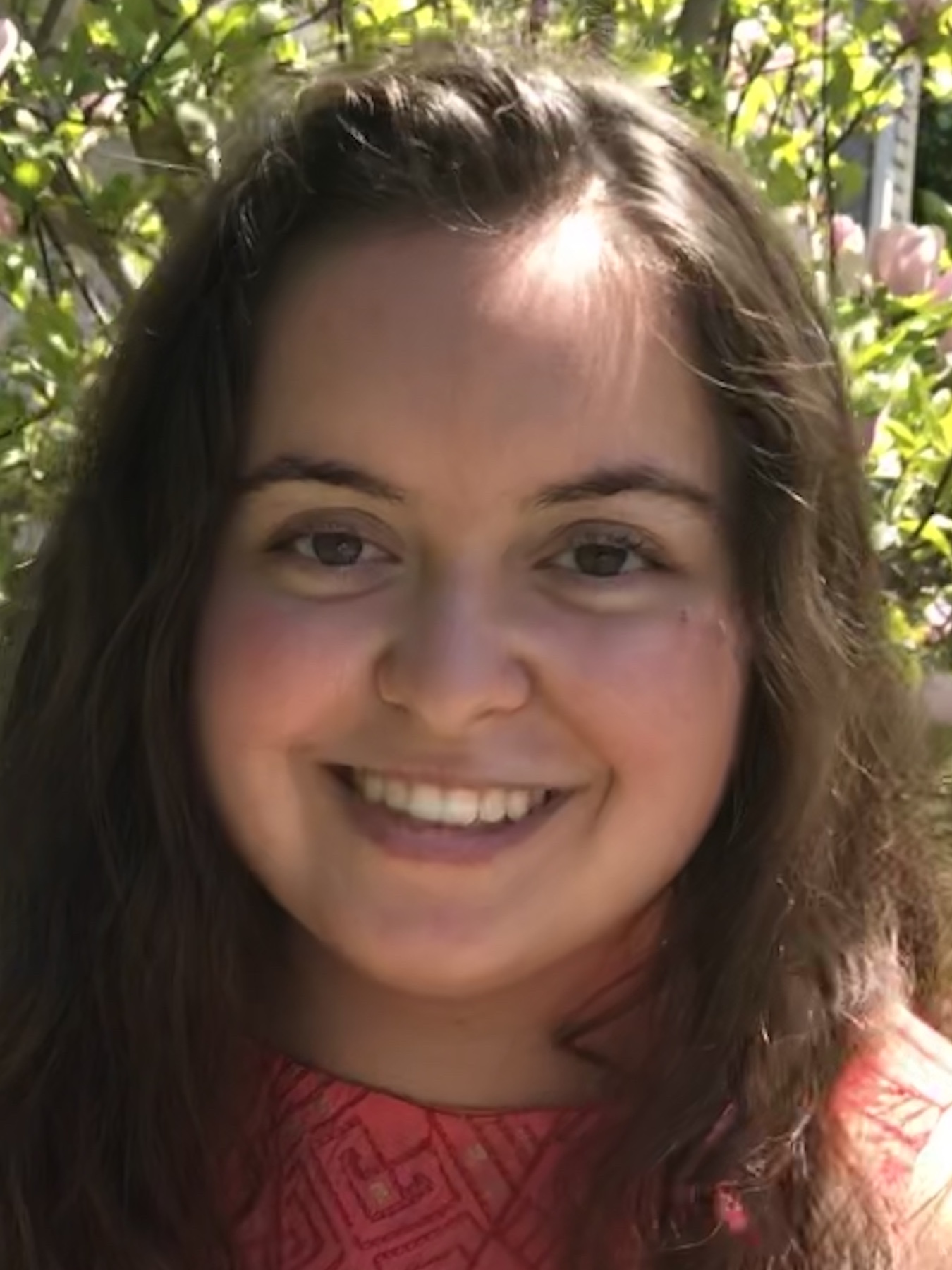 Gaby Mazzoni is a former summer research assistant in the lab. She is currently finishing her bachelor's in Chemical Engineering at Worcester Polytechnic Institute. She is currently working on her senior project engineering different metabolic pathways into probiotic yeast.
Gaby Mazzoni is a former summer research assistant in the lab. She is currently finishing her bachelor's in Chemical Engineering at Worcester Polytechnic Institute. She is currently working on her senior project engineering different metabolic pathways into probiotic yeast.
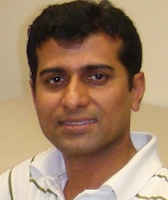 Fahim Mohammad, PhD is a former postdoctoral fellow studying the bioinformatics of complex diseases, computational biology, and systems medicine in the lab. He received his doctorate from the University of Louisville, where he devised a systems-based approach for detecting and predicting molecular interactions across tissues.
Fahim Mohammad, PhD is a former postdoctoral fellow studying the bioinformatics of complex diseases, computational biology, and systems medicine in the lab. He received his doctorate from the University of Louisville, where he devised a systems-based approach for detecting and predicting molecular interactions across tissues.
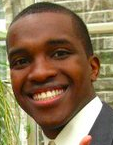 Paulvalery Roulette, MD is an orthopedic hand surgeon at Carolinas Medical Center and an alumnus of Harvard Medical School and Cornell University. In the lab he compiled and analyzed data on the pace of pharmacogenomic advances to forecast when they will affect patients in the clinic, and how much this is likely to cost.
Paulvalery Roulette, MD is an orthopedic hand surgeon at Carolinas Medical Center and an alumnus of Harvard Medical School and Cornell University. In the lab he compiled and analyzed data on the pace of pharmacogenomic advances to forecast when they will affect patients in the clinic, and how much this is likely to cost.
 Ethan Winter is a medical student at Case Western Reserve University. He graduated with his B.S. in Biology from UMass Amherst in 2020 and worked with the Arnaout Lab during his gap year before medical school. His work in the lab pertained to immune repertoire sequencing for natural and vaccine-mediated COVID-19 immunity during the height of the pandemic.
Ethan Winter is a medical student at Case Western Reserve University. He graduated with his B.S. in Biology from UMass Amherst in 2020 and worked with the Arnaout Lab during his gap year before medical school. His work in the lab pertained to immune repertoire sequencing for natural and vaccine-mediated COVID-19 immunity during the height of the pandemic.
 Fazilet Yilmaz is a pathology resident at the Warren Alpert Medical School of Brown University who was a visiting research rotator with the lab, working on COVID-19.
Fazilet Yilmaz is a pathology resident at the Warren Alpert Medical School of Brown University who was a visiting research rotator with the lab, working on COVID-19.
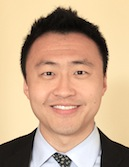 Ming Zhi, MD is a radiation oncologist in California. He is an alumnus of Harvard Medical School and of Stanford University, where he majored in biology. His interests lie at the intersection of medicine, design, and technology. In the Arnaout Lab he studied the utilization of laboratory diagnostics across medicine. He has been known to school Dr. Arnaout on the basketball court and prefers to be paid in Gatorade.
Ming Zhi, MD is a radiation oncologist in California. He is an alumnus of Harvard Medical School and of Stanford University, where he majored in biology. His interests lie at the intersection of medicine, design, and technology. In the Arnaout Lab he studied the utilization of laboratory diagnostics across medicine. He has been known to school Dr. Arnaout on the basketball court and prefers to be paid in Gatorade.
Open positions
We're hiring machine-learning postdocs and wet-lab techs! If you'd like to apply to one of the open positions below, send a CV or resume to rarnaout at bidmc dot harvard dot edu together with a brief (~200-word) statement about why you'd like to join the lab and what you'd like to accomplish while here.
05.23 | Postdoctoral Fellow / Computational Immunology Data Scientist
We are looking for a postdoc-level computational/systems biologist to help design and operate the AI/ML infrastructure required to detect signals of infection and cancer in large immune-repertoire sequencing datasets.
Responsibilities
Devise, test, and implement novel learning algorithms for high-throughput data
Contribute to the generation of standard protocols and intellectual property
Core Qualifications
PhD degree in physics, engineering, mathematics, computational/systems biology, machine learning, artificial intelligence, immunology, bioinformatics, or related field, or equivalent practical experience
Hands-on experience designing and implementing computer algorithms, including supervised and unsupervised machine learning methods like Regression analysis, SVM, deep learning (autoencoders, transformers, geometric deep learning, dynamical systems, model decomposition), etc.
Hands-on expertise with statistical descriptions of complex systems (e.g. energy, entropy, moments, etc. and see under 2 above) and their theoretical underpinnings
Fluency in Unix/Linux environments, Python and ideally other standard bioinformatics tools (e.g. R, Perl, C, bash/csh/zsh, CUDA, OpenGL), ideally including hands-on experience with parallel processing.
Demonstrated expertise in computational analysis of large data sets, ideally biological sequence- based data sets, and 3D protein structures
Excellent creativity, decision-making, troubleshooting, and English-language communication skills
Comfort with and excitement about working in a startup-type atmosphere
Preferred Qualifications
Prior experience with implementing deep learning methods
Prior experience with high-performance computing clusters (SLURM, LSF or PBS schedulers), and AWS
Expertise with using Python libraries like Numpy, Scipy, Pandas, Matplotlib, Seaborn, and Tensorflow
Prior experience with/training in structural biology, immunology, cancer, and/or infectious disease
Experience with web applications/portals (e.g. Shiny Server or Python analogs)
Start date
As soon as possible
How to apply
Please send an email to Dr. Arnaout at rarnaout [at] bidmc [dot] org with your CV explaining why you would be good for the job.
05.23 | Deep-Learning Engineer / Postdoctoral Fellow / Research Scientist
We are looking for postdoc-level scientists/engineers with both conceptual/theoretical and practical/hands-on expertise in deep learning/computer vision to help make machine learning more efficient.
Location
The Beth Israel Deaconess Medical Center is a teaching affiliate of Harvard Medical School located in the heart of Boston’s Longwood Medical Area, a world-renowned center for biomedical research.
Responsibilities
Devise, test, and implement algorithms for high-throughput data
Contribute to the generation of standard protocols and intellectual property
Core Qualifications
PhD degree in physics, engineering, mathematics, machine learning, artificial intelligence, or related field, or equivalent practical experience
Hands-on experience designing and implementing computer algorithms, including supervised and unsupervised machine learning methods, deep learning (autoencoders, transformers, geometric deep learning, dynamical systems, model decomposition), etc.
Hands-on expertise with statistical descriptions of complex systems (e.g. energy, entropy, moments, etc. and see under 2 above) and their theoretical underpinnings
Fluency in Unix/Linux environments, Python and ideally other standard bioinformatics tools (e.g. R, Perl, C, bash/csh/zsh, CUDA, OpenGL), ideally including hands-on experience with parallel processing
Demonstrated expertise in computational analysis of large data sets, ideally in imaging
Excellent creativity, decision-making, troubleshooting, and English-language communication skills
Comfort with and excitement about working in a startup-type atmosphere
Preferred Qualifications
Prior experience with implementing deep learning methods
Prior experience with high-performance computing clusters (SLURM, LSF or PBS schedulers), and AWS
Expertise with using Python libraries like Tensorflow/Theano/Keras, Numpy, Scipy, Pandas, Matplotlib, and Seaborn
Prior experience with/training in medical imaging
Experience with web applications/portals (e.g. Shiny Server or Python analogs)
Start date
As soon as possible
How to apply
Please send an email to Dr. Arnaout at rarnaout [at] bidmc [dot] org with your CV explaining why you would be good for the job.
10.21 | Technologist / Research Assistant II
We are looking for a technologist/research assistant to conduct a variety of routine and specialized laboratory tests using molecular, cell biology and/or biochemistry techniques.
Responsibilities
Perform routine and non-routine laboratory tests (e.g.: next-generation sequencing library prep, DNA sequencing) and synthesize and interpret results
Operate and maintain moderate-to-complex lab equipment
Make decisions regarding the reliability and accuracy of results, repeating experiments when necessary
Assist with planning specific research procedures and coordinate scheduling of experiments
Prepare written and/or verbal reports on status of research and the technical procedures used, including statistical and graphical summaries of findings and possible conclusions
Demonstrate routine to complex lab techniques to others in the lab
Qualifications
Bachelor's or Master's degree in a life-sciences or related scientific field with 1-3 years' relevant work experience
Experience with productivity software (Microsoft Office or LibreOffice)
Excellent creativity, decision-making, troubleshooting, and English-language communication skills
Comfort with and excitement about working in a startup-type atmosphere
Start date
As soon as possible
How to apply
Please send an email to Dr. Arnaout at rarnaout [at] bidmc [dot] org with your CV explaining why you would be good for the job.
10.21 | Deep-Learning Engineer / Research Scientist
We are looking for postdoc-level scientists/engineers with both conceptual/theoretical and practical/hands-on expertise in deep learning/computer vision to help make machine learning more efficient.
Responsibilities
Devise, test, and implement algorithms for high-throughput data
Contribute to the generation of standard protocols and intellectual property
Core Qualifications
PhD degree or equivalent practical experience in physics, engineering, mathematics, computer science, machine learning, artificial intelligence
Hands-on experience designing and implementing computer algorithms, including supervised and unsupervised machine learning methods, deep learning (autoencoders, transformers, geometric deep learning, dynamical systems, model decomposition), etc.
Hands-on expertise with statistical descriptions of complex systems (e.g. energy, entropy, moments, etc.) and their theoretical underpinnings
Fluency in Unix/Linux environments, Python and ideally other standard bioinformatics tools (e.g. R, Perl, C, bash/csh/zsh, CUDA, OpenGL), ideally including hands-on experience with parallel processing.
Demonstrated expertise in computational analysis of large data sets, ideally in imaging
Excellent creativity, decision-making, troubleshooting, and English-language communication skills
Comfort with and excitement about working in a startup-type atmosphere
Preferred Qualifications
Prior experience with implementing deep learning methods
Prior experience with high-performance computing clusters (SLURM, LSF or PBS schedulers), and AWS
Expertise with using Python libraries like Tensorflow/Theano/Keras, Numpy, Scipy, Pandas, Matplotlib, and Seaborn
Prior experience with/training in medical imaging
Experience with web applications/portals (e.g. Shiny Server or Python analogs)
Start date
As soon as possible
How to apply
Please send an email to Dr. Arnaout at rarnaout [at] bidmc [dot] org with your CV explaining why you would be good for the job.
About the lab
Our laboratory is part of the Department of Pathology at the Beth Israel Deaconess Medical Center (BIDMC) and Harvard Medical School (HMS) and is affiliated with the Division of Clinical Informatics in the Department of Medicine at BIDMC and the Department of Systems Biology at HMS. We are supported through generous gifts and grants from the National Institutes of Health, the American Heart Association, and others.
We study immunomics because of its great potential to improve people's health. We are only able to do that because of you: through your grants and gifts, and through your personal commitment to and involvement in scientific research. If you believe in our mission, thank you!, and here are two ways you can help:
Support the lab
One way is to make a gift to the lab through a donation to our parent institution. Other options may be available. Please direct inquiries to us at rarnaout at bidmc dot harvard dot edu.
Get involved
Immunomics today is where genomics was a decade ago: we have lots to learn. One of the best ways to help is by letting us sequence your immunome, following the precedent set by the the Personal Genomes Project, the Million Veterans Program, and other citizen science projects. Speaking with or involving other people, from students to policymakers, are also helpful things to do. If you are interested, or can think of other ways to help, please write us at rarnaout at bidmc dot harvard dot edu.
News
05.23 | COVIRAL
Exploring COVID-19 Viral Loads in Diverse Patient Cohorts
When you get COVID-19, the amount of virus you can have varies over 10 orders of magnitude. This raises two questions: are there systematic differences in different groups of patients (those that differ by demographics, comorbidities, etc.)? and can we expect antigen tests to perform the same on everyone, a question the FDA in particular is interested in? To address these questions, we analyzed over 40 thousand positive PCR tests over the course of the pandemic and made all that data available through a free and interactive public web portal, for everyone to explore. Read about our findings on the preprint by Morgan et al. of how well antigen tests
03.23 | ENTROPIC ADVANCES
Measuring What Antibodies and TCRs Can Do at Scale
Antibodies and T cell receptors (TCRs) are the fundamental building blocks of adaptive immunity. Repertoire-scale functionality derives from their epitope-binding properties, just as macroscopic properties like temperature derive from microscopic molecular properties. However, most approaches to repertoire-scale measurement, including sequence diversity and entropy, are not based on antibody or TCR function in this way. Thus, they potentially overlook key features of immunological function. We recently published a framework that describes entire repertoires in terms of the epitope-binding properties of their constituent antibodies and TCRs, based on analysis of thousands of antibody-antigen and TCR-peptide-major-histocompatibility-complex binding interactions and over 400 high-throughput repertoires. Read about it at PNAS.
06.22 | CODE
Convert from COVID-19 Ct Values to Viral Loads
Up to now, COVID-19 test results have been reported as positive vs. negative, even though “positive” can mean anywhere from 1 copy of SARS-CoV-2 virus per milliliter of transport media to over 1 billion copies/mL, with attendant clinical consequences. We are releasing Python code, ct2vl, to democratize access to viral loads as the first step toward their eventual incorporation into test development, the research literature, and clinical care. Spearheaded by Elliot Hill in the lab. See the preprint on bioRxiv.
06.22 | PRESENTATION
What's New in Computational Microbiology
At ACM Microbe 2022, "What's New in Computational Microbiology: Gram-Stain Deep Learning and Quantitative COVID-19" covered Deep Neural Networks Offer Morphologic Classification and Diagnostis of Bacterial Vaginosis by Wang et al., Misic, a General Deep Learning-Based Method for the High-Throughput Cell Segmentation of Complex Bacterial Communities by Panigrahi et al., Deep Learning for Imaging and Detection of Microorganisms by Zhang et al., Best practices for authors of healthcare-related artificial intelligence manuscripts by Kakarmath et al., Minimum information about clinical artificial intelligence modeling: the MI-CLAIM checklist by Norgeot et al., and The Limit of Detection Matters: The Case for Benchmarking Severe Acute Respiratory Syndrome Coronavirus 2 Testing by Arnaout et al.
04.22 | PODCAST
Dr. Arnaout Talks COVID-19 Swabs
Dr. Arnaout was the featured guest on Episode 6 of The Interactome podcast, "Swab Story." A wide-ranging conversation about cooperation, team-building, 3D printing, leadership, and Kevin Bacon.
03.22 | PODCAST
Dr. Arnaout Joins Inside the Lab
Dr. Arnaout joined Drs. Sarah Riley and Nicole Pecora on Season 2, Episode 15 of the American Society for Clinical Pathology's Inside the Lab podcast to discuss making clinical pathology more visible, survival skills, and work-life balance. Hosted by Dr. Dan Milner and Ms. Kelly Swails.
03.22 | FDA AWARD
Arnaout Lab Wins Reagan-Udall Grant
The Reagan-Udall Foundation for the FDA has awarded Dr. Arnaout and colleagues a grant to speed evaluation and approval of tests for COVID-19. One of only two awards nationwide.
Congratulations to the awardees of our research funding opportunity @BIDMChealth and IDX20! We look forward to following your progress on #COVID19 research. https://t.co/AGfvZgdZTX pic.twitter.com/hRqhLci1Ao
— Foundation for FDA (@reaganudall) March 3, 2022
01.22 | VISUALIZATION
Visualizing the COVID-19 Omicron Wave
An interesting way to visualize differences in the various waves of the pandemic: plotting deaths as a function of cases that supports the mounting evidence that omicron is quite different. Preprint here.
12.21 | STORY
BIDMC COVID-19 Test Development
The story of how BIDMC Microbiology developed and executed on its launch of COVID-19 testing last year, for a time making the hospital New England's largest testing center, in the current issue of Giving Matters.
11.21 | MEDICINE
Verifying Multiplex Respiratory Testing
Congratulations to Annie Cheng, Stefan Riedel, and James Kirby on our new paper verifying the Abbott Alinity m Resp-4-Plex assay for detection of SARS-CoV-2, influenza A/B, and respiratory syncytial virus.
11.21 | AWARD
Drs. Arnaout & Arnaout Receive Moore Award
The generous award from the Gordon and Betty Moore Foundation supports the continued collaboration between the Arnaout Lab and Dr. Rima Arnaout's laboratory at UCSF.
11.21 | MEDICINE
Drs. Arnaout and Kirby Deliver Silverman Keynote Address
The talk, describing BIDMC Microbiology's contribution to our healthcare system's multifaceted response, capped off a day of inspirational presentations. Listen starting at 1:15:50.
09.21 | MEDICINE
Dr. Arnaout Selected to Deliver Silverman Keynote Address
Dr. Arnaout and colleague Dr. James Kirby, MD will be describing their experience helping lead BIDMC’s COVID-19 response at the 13th annual Silverman Symposium for Healthcare Quality.
09.21 | COVID-19
Lessons from the 3D-Printed Swab Experience
In a JCM editorial, Dr. Arnaout gives an in-the-trenches account of the unprecedented teamwork required to create 3D-printed nasopharyngeal swabs for COVID-19, including five lessons for bringing that success to other emergency collaborations.
09.21 | WELCOME
Elisa Contreras Joins the Arnaout Lab
The Arnaout Lab welcomes Elisa Contreras, new technologist in the laboratory.
09.21 | WELCOME
Elliot Hill Joins the Arnaout Lab
The Arnaout Lab welcomes Elliot Hill, new computational scientist in the laboratory.
7.21 | MICROBIOLOGY
Dr. Arnaout named President-Elect of American Society of Microbiology Northeast Branch
Dr. Arnaout was elected the next president of the Northeast Branch of the American Society of Microbiology, focused on New England.
06.21 | COVID-19
Raft of COVID-19 Papers from the Arnaout Lab Published
A number of medRxiv preprints from 2020 have cleared peer review regarding the importance of the limit of detection, nasal-swab testing, saliva testing, and multiplex testing.
06.21 | IMMUNOMICS
Laboratory Wins Award to Sequence Immunomes
The award, from the Massachusetts Life Sciences Center with industry partner Kapa Biosciences (a Roche company), will allow large-scale immune-repertoire sequencing across a wide range of exposures. Contact us if you would like to be involved!
05.21 | WELCOME
Ashley Burke Joins the Arnaout Lab
The Arnaout Lab welcomes Ashley Burke, summer student in the laboratory.
05.21 | WELCOME
Gaby Mazzoni Joins the Arnaout Lab
The Arnaout Lab welcomes Gaby Mazzoni, summer student in the laboratory.
05.21 | CONGRATULATIONS
Ethan Winter Is Going to Medical School!
The lab congratulates Ethan Winter, who will be starting medical school at Case Western in the fall. We are sorry to see him go, but glad he’s beginning the next step of his career.
03.21 | MACHINE LEARNING
BIDMC-UCSF Collaboration Publishes New Instance Learning Strategy for Medical Imaging
Deep learning is notoriously data hungry, which is a critical bottleneck in medical imaging. Our new UCSF-BIDMC solution, ENRICH, was just posted to bioRxiv.
03.21 | WELCOME
Jasper Braun Joins the Arnaout Lab
The Arnaout Lab welcomes Jasper Braun, new postdoctoral fellow in the laboratory.
01.21 | CONGRATULATIONS
Rohit Arora Hired at Iktos, Inc
Postdoctoral fellow Rohit Arora is taking a position as research scientist at Iktos, where he will be putting his formidable skills to work on molecular problems.
11.20 | WELCOME
Ethan Winter Joins the Arnaout Lab
The Arnaout Lab welcomes Ethan Winter, new technologist in the laboratory.
08.20 | WELCOME
Sarah Ditelberg Joins the Arnaout Lab
The Arnaout Lab welcomes Sarah Ditelberg, new technologist in the laboratory.
05.20 | COVID-19
WBUR, WBGH, Others Report on 3D-Printed Swabs
WBUR’s Barbara Moran, WGBH’s Cristina Quinn, and WFXT’s Kerry Kavanaugh interview Dr. Arnaout about the lab’s work on 3D printed nasopharyngeal swabs for COVID-19.
04.20 | COVID-19
Lab’s 3D-Printed Swab Work Covered in Washington Post
The article appeared in print under the headline How a Boston hospital solved its swab shortage with the help of 3-D printers, reported by Steven Mufson, Craig Timberg, Nitasha Tiku.
11.19 | IMMUNOMICS
Dr. Arnaout Speaks at NEB-ASM
The topic is the Immunomics of Infectious Diseases; the audience will be clinical microbiologists from across the Northeast. The event is sponsored by the American Society of Microbiology’s Northeast Branch.
05.19 | LABORATORY MEDICINE
Dr. Arnaout Recognized for Leadership of CLIAC
In finishing his term as chairman of the Clinical Laboratory Improvement Advisory Committee, Dr. Arnaout was cited for record productivity and positive outcomes under his stewardship.
Older news